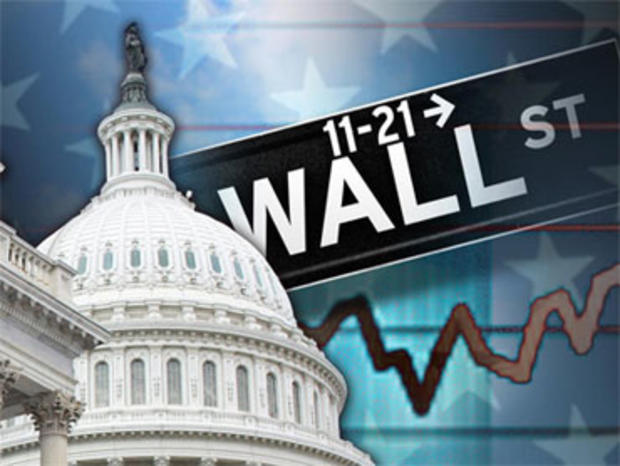Obama: I'll Veto Financial Reform Bill if it Doesn't Control Derivative Markets
President Obama today vowed to veto any financial regulatory reform bill that doesn't bring "the derivatives market under control."
In remarks at the start of his meeting with his Economic Recovery team, the president said he wants financial regulatory reform legislation because "we can't allow history to repeat itself."
He said Americans should not have to step in and pay the price for the irresponsibility of speculators on Wall Street.
The decision facing lawmakers considering the bill, he said, is, "are they going to side with the special interests and the status quo, or are they going to side with the American people?"
The president said he wants a law that forces banks and financial institutions to pay for the bad decisions they make -- "and that means no more bailouts."
Mr. Obama said that while he would like a bipartisan bill, "bipartisanship cannot mean simply passing" a bill that includes lobbyist-driven concessions to Wall Street. He said special interests in the financial industry have allies among Republicans in Congress.
According to the Associated Press, Senate Republican Leader Mitch McConnell has collected the signatures of 41 Republican senators opposing the proposed bill and asking for more negotiation, enough for a filibuster. "We are united in our opposition to the partisan legislation reported by the Senate Banking committee," they said in the letter.
Following the advice of a GOP pollster, some Republicans have deemed the regulatory reform bill a "bailout bill," prompting a strong rebuttal from the White House. McConnell, who has taken money from the "Finance, Insurance and Real Estate" sector than any other, has denied he is doing the bidding of big banks.
The legislation being considered in Congress would regulate derivatives such as the mortgage-backed securities that helped spur the economic meltdown.
McConnell argues that the proposed $50 billion, bank-funded fund that would be used to liquidate financial firms that could collapse "would of course immediately signal to everyone that the government is ready to bail out large banks."
In October, Treasury Secretary Timothy Geithner said "a standing fund would create expectations that the government would step in to protect shareholders and creditors from losses" -- though since the fund proposed in the regulatory reform bill would be financed by banks, the proposed bill would presumably not require the government to fund any bailout.
Still, according to the AP, citing a senior Treasury official, the White House is urging Senate Democrats to drop the $50 billion bank liquidation fund.
